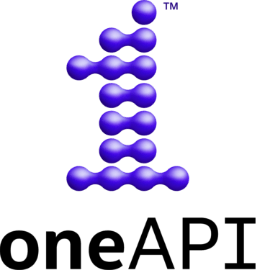Videos & Podcasts
Industry Experts Solving Your Challenges
Migrating and tuning a CUDA-based stencil computation to DPC++
Reverse Time Migration takes advantage of the finite-difference method (FD) to perform the numerical approximations for the acoustic wave equation. Stencil computation applied to this numerical method represents a computational bottleneck when developing RTM applications,...
Comparative Analysis of Intel HLS Design Tools on a Case Study in Neuromorphic
Academic computing clusters and cloud-based systems, such as Amazon Web Services and Google Cloud, have been integrating high-end FPGAs for high-performance computing (HPC) into their ecosystems, increasing the availability of FPGAs to a broader community....
TAU Performance System
The TAU Performance System® [http://tau.uoregon.edu] supports profiling and tracing of programs written using the Intel OneAPI. Intel OneAPI provides two interfaces for programming – OpenCL and DPC++/SYCL for CPUs, GPUs, and other devices. TAU has...
Porting Boris Particle Pusher to DPC++. Performance Analysis and Optimization on Intel CPUs and GPUs
The talk reports the results of porting one of the key computational kernels of the High-Intensity Collisions and Interactions (Hi-Chi) open-source numerical code to the DPC++ programming language. When planning to port the entire Hi-Chi...
Porting oneAPI DPC++ on Xilinx FPGA & Versal ACAP CGRA
Many accelerators comes with programming environment suitable for electrical engineers or usable with machine-learning frameworks but remain difficult to use in an HPC context. Fortunately SYCL 2020 can bring direct programming for various accelerators through the...
Single source heterogeneous programming with Data Parallel C++ and SYCL 2020 features
We will introduce oneAPI and Data Parallel C++ for heterogenous programming. We begin by introducing this technology as an extension to standard C++ which incorporates parallelism directly into the language using SYCL specifications. We will...

